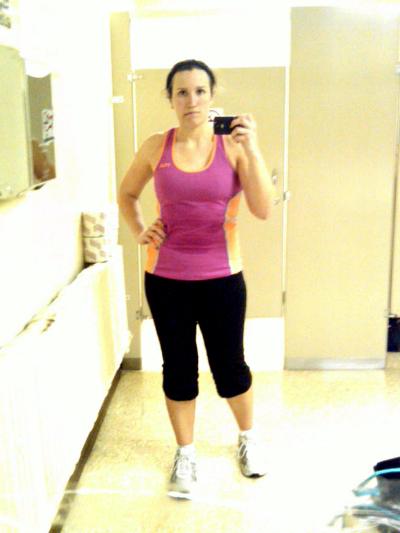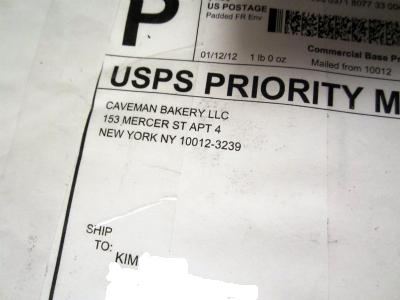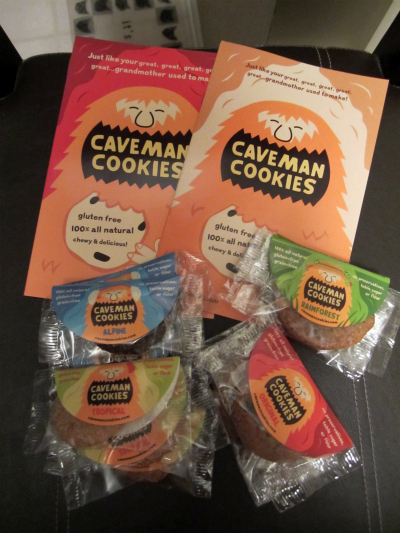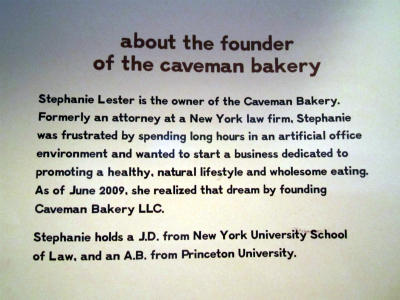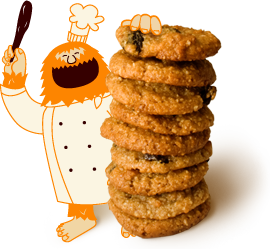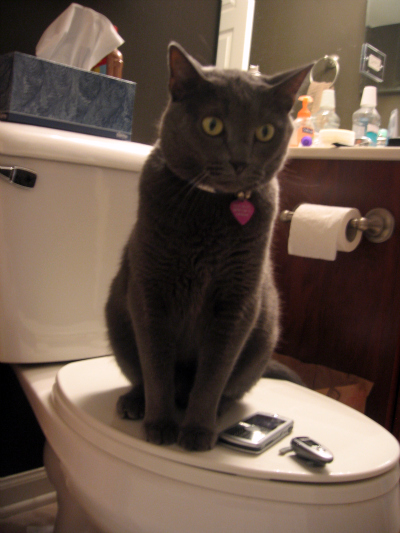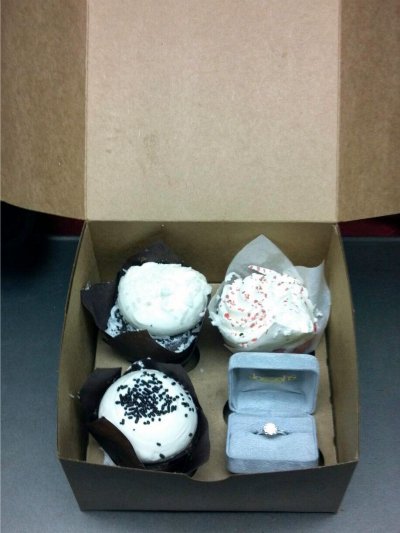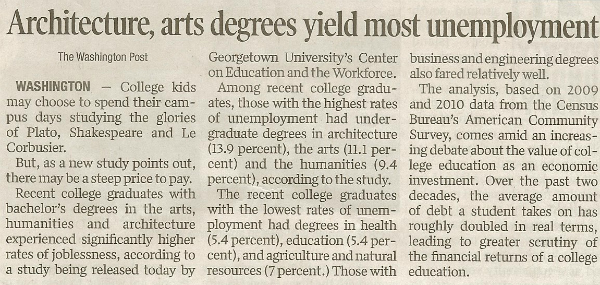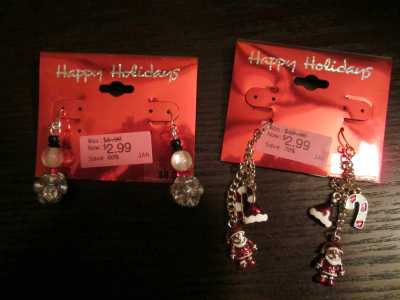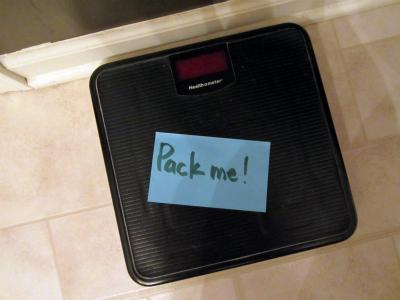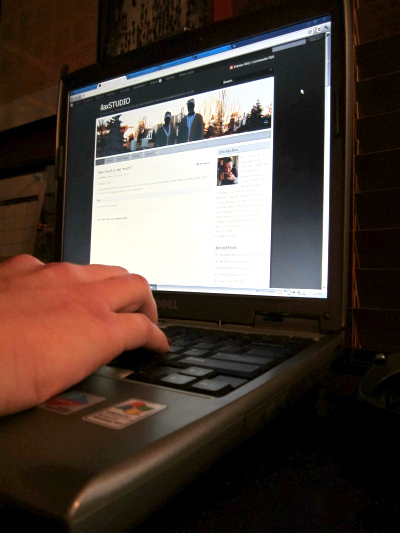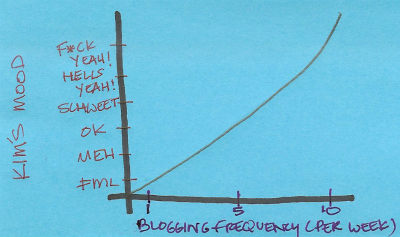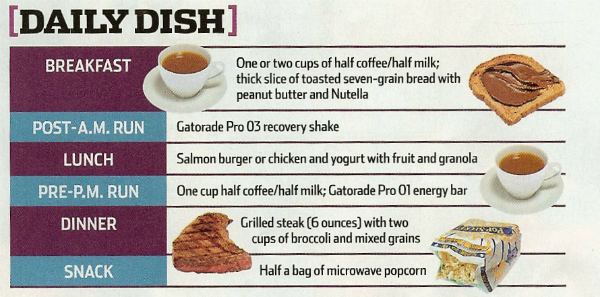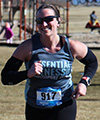How true are our online identities to who we are in real life*? What do we choose to reveal and hide when we present ourselves online?
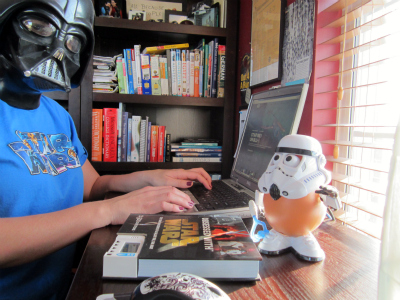
I’ve been alluding that I’ve been working on an online identities post for awhile. Erin first asked that I write about it when I mentioned FOMO (Fear of Missing Out) in this post. FOMO happens when you go online and read about people doing all these fun things – and it makes you feel like you are missing out. This is similar to the social comparison theory – that we evaluate our own circumstances by comparing them to others. Research says that a lot of people feel depressed during the holidays because of this. They see everyone sharing their celebrations (online or in person), and can’t help but think they are better than their own. Well, that can get especially tricky when you are comparing yourself to someone’s Facebook status, which may only highlight the good**.
So, we know we compare ourselves to what we see online. I bet we all do, a little bit, in some shape or form. In this post, I talked about how I cannot read food journal blogs, because I compare myself. And some people mentioned that that does not affect them, but that they can’t read training blogs. Seeing people having fun does not make me feel left out, but I can see how it would! We’re all different.
Yikes! I feel like I need to back up. I am already all over the place with this post. And I have a lot to say!
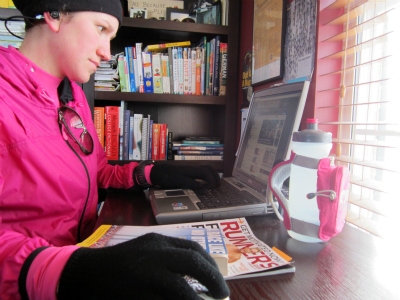
Since Erin mentioned that she thought a post on online identities would be interesting, I have been picking up a lot on people casually alluding to their online identities. One blogger said they have to filter everything they write on their blog because one of their siblings reads their blog. Have you ever filtered what you say on your blog because family is reading? You can believe I have.
Another blogger said that they doubted what some food bloggers show on their blog is really all they are eating. It just seemed like so little, like the food blogger was only putting on a show for an audience.
And another blogger wrote that they make sure they don’t write too many “down” posts in a row on their blog, because then their readers start to worry about them! And they don’t want that. But hey, that blogger probably also wants an outlet for the crappy things in life, so what can they do?
It seems to me like these are all minor levels of altering our identities. Not telling a story because family will interpret it weirdly, lying about how much ice cream you ate (or that you ate it at all), making sure the post you write isn’t too much of a downer… we can do all of these things but still be somewhat true to our identity. Don’t get me wrong, it does begin to alter people’s view of us, but it wouldn’t be such a big deal if you met a blogger in real life, then realized, “wow, you eat a lot more ice cream than I thought” (such a silly example, but you get it).
But what about completely altered online identities? People who lie about their sex or age on their blog, in forums, on dating sites. People who pretend they are someone else… even using someone else’s picture. People who completely lie and make up “facts” about what they are talking about. I have heard rumors of a Chicagoland blogger who completely lies about her race times – she says she finished a marathon in under 4 hours but it really took her 6, or something like that.
I think it’s true that we are all going to alter our identity a bit, but how much? Are we just leaving out little upsetting facts that we don’t want people to know about us? Or are we lying about where we’re from, what we do, how much we make at work? The internet gives us infinite opportunities to define who we are. We get to choose how true that is. And in the beginning it only affects us*** – but as we start to build online relationships based on online identities, it can affect other people as well.
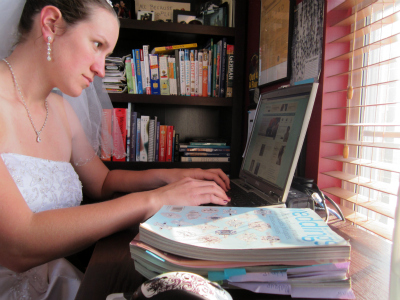
In true Kim style, I couldn’t write this post without doing a little bit (very little) online research, so I can give you some bullets, and I found this cool online book called The Psychology of Cyberspace. Even better, I found this short article, which gives an overview and some interesting tidbits of the book. Credit for this info to John Suler, who wrote the online book.
- Level of Dissociation and Identity – We balance multiple roles in real life – spouse, mother, neighbor, employee, etc. Our lives are successful when we efficiently “juggle” our different roles. Our online identities give us a chance to dissociate how much of these roles we reveal. It also gives us the opportunity to focus on one of these roles, and really develop it, when we might not have the opportunity to in real live.
- Positive and Negative Valence – We may choose to highlight our most positive or negative qualities online, as a sub-conscious way of working through them. “An insecure, passive-aggressive person gets stuck in an endless stream of online arguments. Others may use cyberspace as a opportunity to exercise their positive characteristics, or to develop new ones in a process of ‘self-actualization.'”
- Level of Fantasy or Reality – In some instances we are expected to be truthful to who we really are, say for example, on LinkedIn. But in a fantasy online community, you are encouraged to make up your character, or avatar. So at what level are we representing ourselves? And the author brings up this interesting question:
What is one’s TRUE identity? We usually assume it must be the self that you present to others and consciously experience in your day-to-day living. But is that the true self? Many people walk around in their f2f [face-to-face] lives wearing “masks” that are quite different than how they think and feel internally. All the time people are discovering things about their personality that they never realized before. Our daydreams and fantasies often reveal hidden aspects of what we need or wish to be. If people drop the usual f2f persona and bring to life online those hidden or fantasied identities, might not that be in some ways MORE true or “real”?
- Level of Conscious Awareness and Control – We may be selecting a way to represent ourselves online subconsciously. We may do things that appeal to us, without even realizing the deeper meaning of the choice we are making.
- The Media Chosen – whether it’s a blog, twitter, Facebook, chat, video chat, email – these tools all allow different levels of communication. The media we choose to use will affect our “degree of identity integration and dissociation.”
Online identities – it’s like I have opened up a can of worms. What’s your thought on all this?
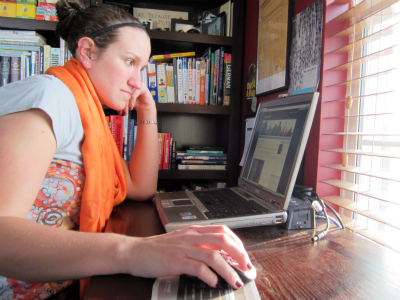
Just writing this put a lot of thoughts in my head for future blog topics… so stay tuned! (if you’re interested, ha ha)
*And even writing this, I am thinking, who we are in real life changes depending on who we are around!
**Not to say there aren’t people on Facebook who only highlight the bad. Ha ha.
***I bet it’s very easy to get lost in an online identity.
